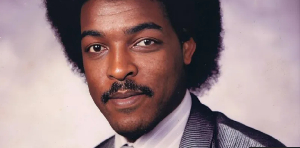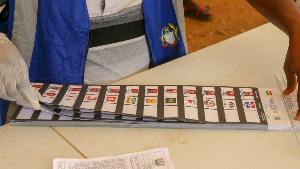The main opposition National Democratic Congress (NDC) has questioned the neutrality of Mr Martin Amidu as Special Prosecutor.
The NDC, in a statement, said Mr Amidu is not impartial, and, therefore, cannot occupy such a position because of how critical he has been of the party, especially under the erstwhile John Mahama-led government.
Mr Amidu became critical of the NDC after late president John Evans Atta Mills fired him as Attorney General in 2012.
The NDC has, therefore, raised questions with his nomination as the special prosecutor.
A statement signed by General Secretary Johnson Asiedu Nketia dated 5, February 2018, said: “We believe that it is in the supreme national interest that the appointment of the person to head such an important institution be carefully thought through, that above all such an individual should enjoy the respect and confidence of all sides of the polity, and must have the impartiality and objectivity of a judge and the integrity of a clergyman.”
“The office must not be seen or treated as a political outpost for witch-hunting or the performance of hatchet jobs for an incumbent administration. That would most definitely lead to needless socio-political tensions and national instability,” it added.
Mr Amidu will appear before the vetting committee of parliament on 13 February 2018, and if approved, will begin work as Ghana’s first special prosecutor to investigate and prosecute all corrupt public office holders.
Below is the full statement:
STATEMENT BY THE NATIONAL DEMOCRATIC CONGRESS (NDC) ON THE SCHEDULED VETTING OF MR. MARTIN AMIDU TO THE OFFICE OF SPECIAL PROSECUTOR
The Office of Special Prosecutor has recently been setup, and Mr. Martin Amidu a former Attorney General and one-time NDC running mate for Professor Atta Mills nominated as Special Prosecutor.
As a party with rich knowledge of the workings of machinery of state, we respect all national institutions including especially those that are designed to assure good governance, probity, accountability and judicious use of the country’s resources.
We note that the Office of the Special Prosecutor adds to already existing institutions performing similar functions such as the Commission on Human Rights and Administrative Justice (CHRAJ), the Economic and Organised Crime Office (EOCO), the Bureau of National Investigations (BNI), the Criminal and Investigations Department of the Police Service (CID), Parliament’s Oversight Committees and indeed the Office of Public Prosecutions which falls under the Ministry of Justice and Attorney General’s Office.
We observe that after falling out with the NDC administration, Mr. Martin Amidu was allowed free rein to express his opinions without let or hindrance, something he did by openly castigating and issuing threats to the NDC and its leadership. We are not at all concerned, contrary to the insinuations of some that he should now to be handed the full authority of state power to possibly pursue this agenda.
Our issue with the nomination of Mr. Martin Amidu is based purely and solely on important matters of principle. We note among others that Mr. Amidu has previously published a document challenging the constitutionality of the newly-established Office of Special Prosecutor, the very office he has accepted to occupy.
We believe that it is in the supreme national interest that the appointment of the person to head such an important institution be carefully thought through, that above all such an individual should enjoy the respect and confidence of all sides of the polity, and must have the impartiality and objectivity of a judge and the integrity of a clergyman.
The office must not be seen or treated as a political outpost for witch-hunting or the performance of hatchet jobs for an incumbent administration. That would most definitely lead to needless socio-political tensions and national instability.
Article 296 (a) and (b) of the 1992 Constitution states that where discretionary power is vested in any person or authority (as in the case of a Special Prosecutor)
a. That discretionary power shall be deemed to imply a duty to be fair and candid b. The exercise of the discretionary power shall not be arbitrary. Capricious or biased whether by resentment, prejudice or personal dislike and shall be in accordance with due process of law.
The NDC, therefore, expects that when the time comes for the vetting of the nominee for the position of Special Prosecutor, Parliament will discharge its obligation mindful of the above constitutional provisions. In the interest of good governance, accountability, probity and fair play we urge that the national debate and the forthcoming vetting of the nominee be guided by these principles and not by the rather shrill partisanship that we have begun to witness among the rather predictable sections of the political spectrum.
Finally, we wish to state that the NDC remains committed to the fight against corruption both in respect of the past and even more especially the present.
Sign Hon. Johnson Asiedu Nketiah General Secretary.
General News of Tuesday, 6 February 2018
Source: classfmonline.com
Don’t be a 'hatchet' man – NDC to Amidu
Entertainment
















